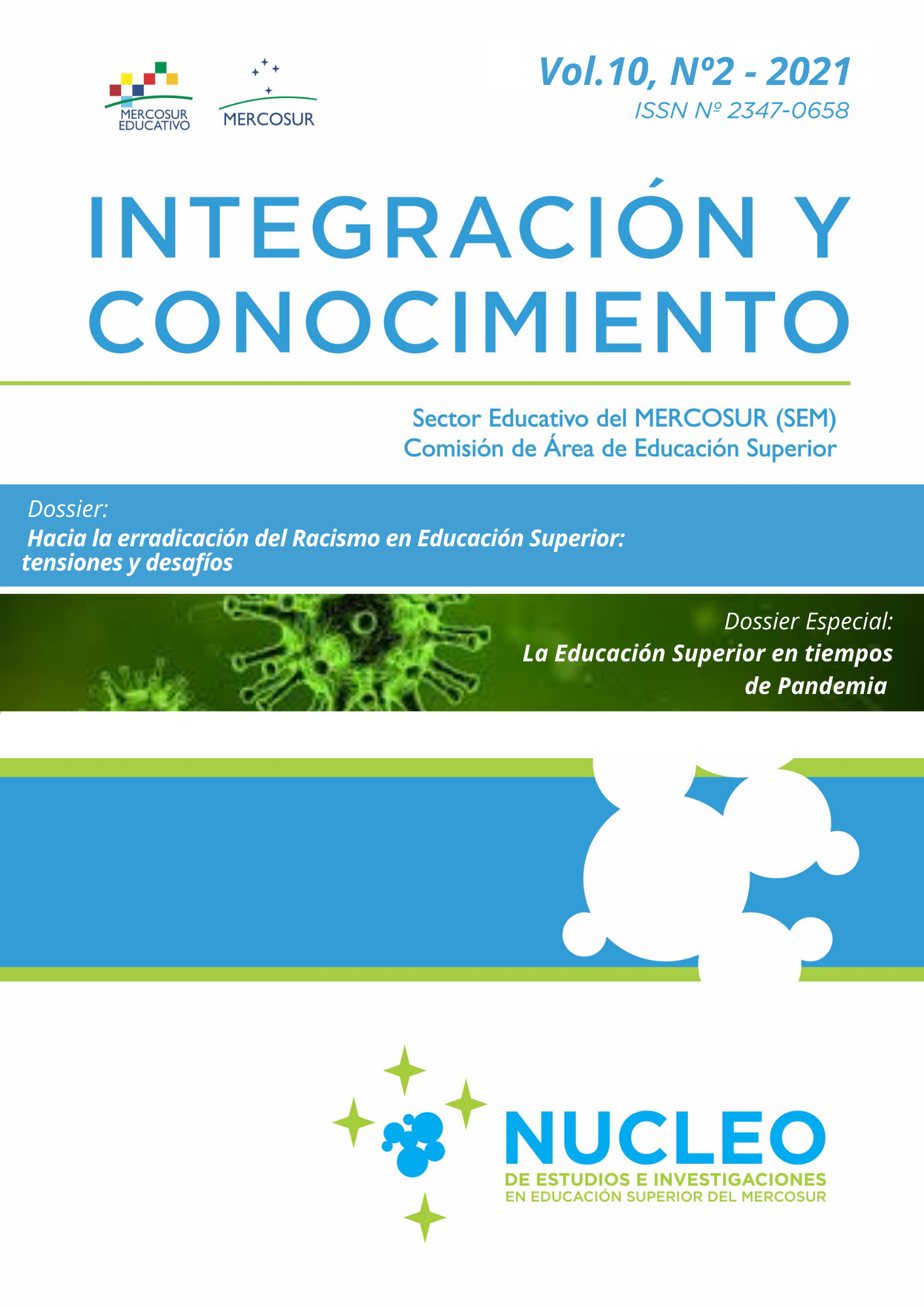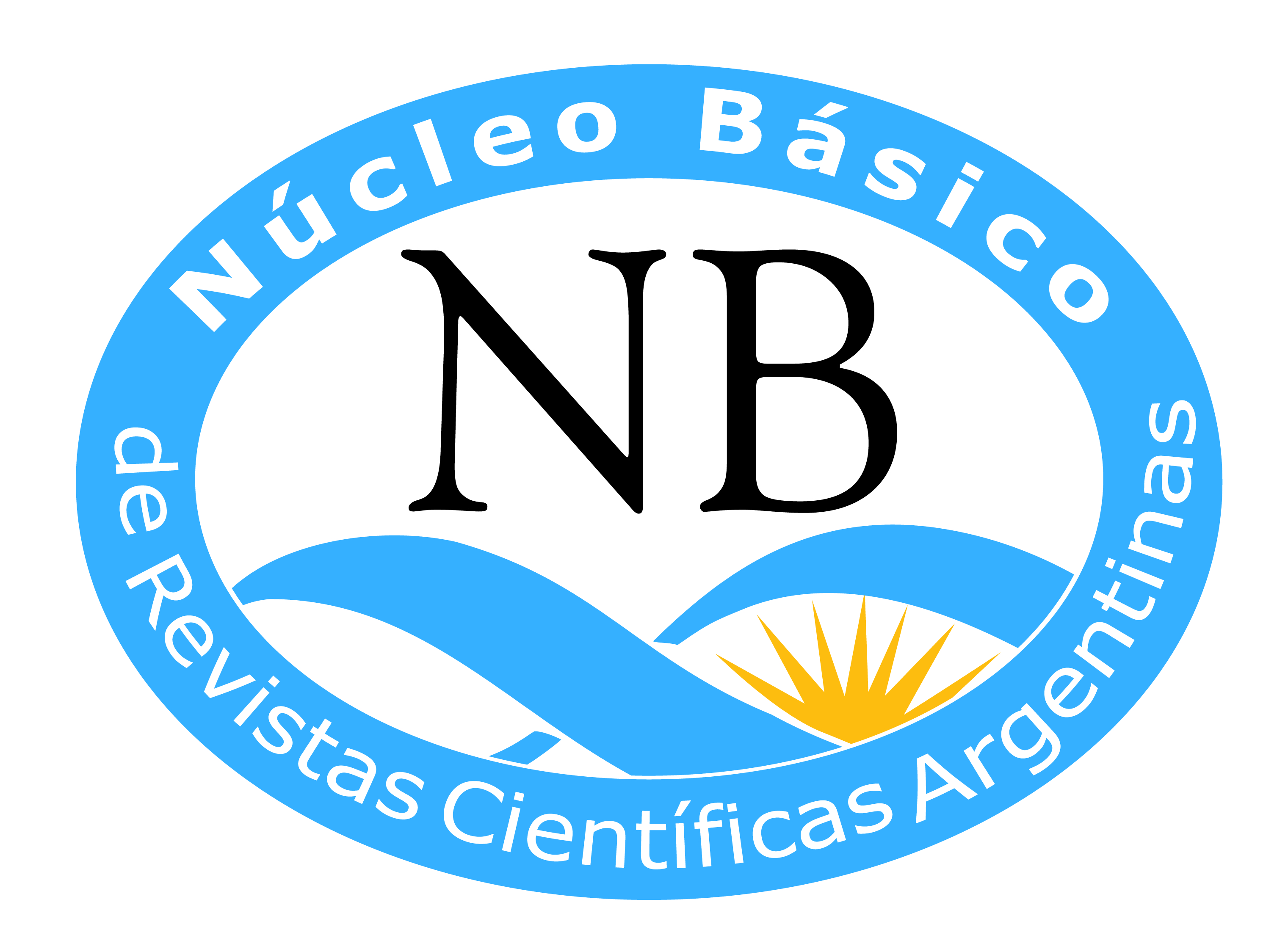The offer of technological tertiary education in MERCOSUR: contributions from a collaborative research project
DOI:
https://doi.org/10.61203/2347-0658.v10.n2.34114Keywords:
Technical higher education; institutional models; trajectories.Abstract
This paper presents the elaboration process of the comparative study referred to the analysis of the
offer of tertiary education in MERCOSUR, framed in the NEIES 2018 call. The study was developed from
three work axes: (i) a characterization of the situation at a macro level of Higher Technological Education in
the countries participating in the project was carried out, through the analysis of available secondary sources,
in charge, (II) an approach at the micro level was proposed using the methodology of the case study, centered
on the models of institutional management of four selected technological institutes, (iii) which recognizes the
centrality of the personnel responsible for management, the training trajectories of the management teams of
the selected institutes were recovered. The study focused on the micro dimension, as a key element for quality
improvement, in the macro context of the construction of supranational public policies, taking MERCOSUR
as an area of cooperation and exchange. One of the highlights of the work is that researchers from Argentina,
Brazil, Chile and Uruguay participated in the preparation of the national cases selected and analyzed, and that
the work methodology was the result of a collective effort to integrate different perspectives and trajectories.
Downloads
References
Achilli, E. (2005). Investigar en Antropología Social. Los desafíos de transmitir un oficio. Laborde. Rosario, Argentina.
Briasco, I; Bottinelli, L; Montes, N. (2020). La oferta de educación terciaria tecnológica. Caracterización de los modelos de gestión institucional desde la perspectiva de los estudios comparados. (Informe Final de Estudios Sectoriales). Inédito. NEIES. SEM. Buenos Aires. Argentina.
Jacinto, C. (2013). La educación post-secundaria técnica: contexto, interrogantes y aportes de la investigación. En Jacinto (comp.) 2013. Incluir a los jóvenes. Retos para la educación terciaria técnica
en América Latina. Paris-IIPE-UNESCO, pp. 39-66. Disponible en: https://unesdoc.unesco.org/ark:/48223/pf0000227350
OREALC/UNESCO (2013). Estado de situación de los Sistemas de Información (SINFO) de la Educación y Formación Técnica y Profesional (EFTP) en 12 países de América Latina y el Caribe. Santiago, Chile: OREALC/UNESCO.
UNESCO (2015a). La Educación para Todos, 2000-2015: logros y desafíos, informe de seguimiento de la EPT en el mundo. París: UNESCO. Disponible en: https://unesdoc.unesco.org/ark:/48223/
pf0000232565spa
UNESCO (2016). Estrategia para la enseñanza y formación técnica y profesional (EFTP) (2016-2021. Paris: UNESCO. Disponible en: https://unesdoc.unesco.org/ark:/48223/pf0000245239spa
Viera Duarte, P.; Martínez Larrechea, E.; Correa, R (2013). Un abordaje pedagógico a la Educación Universitaria desde la concepción de LLL: formación de profesores en Uruguay. En ALFA TRALL BOOK. v.: 1, p.1-15. Universidad de Bolonia y Universidad Católica de Temuco (org.) Editorial Santiago: Chile.
Downloads
Published
Issue
Section
License

This work is licensed under a Creative Commons Attribution-NonCommercial-ShareAlike 4.0 International License.
Authors who have publications with this journal accept the following terms:
a. Authors shall retain their copyright and guarantee the journal the right of first publication of their work, which shall simultaneously be subject to the Creative Commons License of Recognition which allows third parties to share the work as long as its author is indicated and its first publication is this journal.
b. Authors may adopt other non-exclusive licensing agreements for the distribution of the published version of the work (e.g., depositing it in an institutional telematic archive or publishing it in a monographic volume) provided that the initial publication in this journal is indicated.
c. Authors are allowed and encouraged to disseminate their work via the Internet (e.g. in institutional telematic archives or on their website) after publication of the article, which may lead to interesting exchanges and increased citations of the published work. (See The Effect of Open Access).



